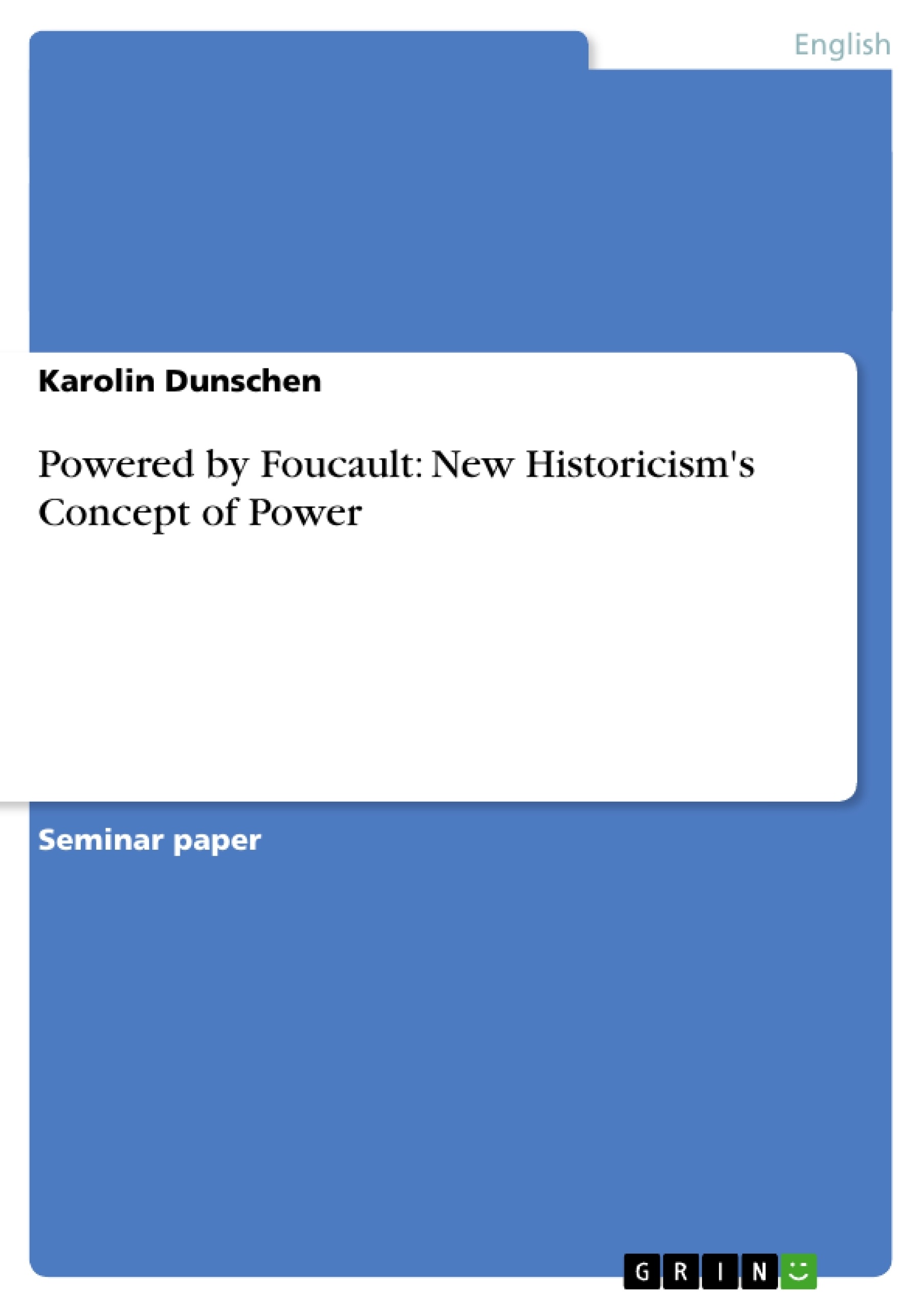I don’t want to “improvise on the metaphor Deleuze used to describe the way he made use of fellow philosophers (though he usually made use of them in quite a gentle manner) to come across with his own ideas. I rather like to think of such theorists as Nietzsche, Foucault, or Greenblatt in a more detached manner as atomic particles that hardly ever meet, but sometimes do, and when they crash make something emerge that may be new and may be not. I’d like to take some of that enthusiastic energy Greenblatt felt when first he met Foucault and heard him lecture and let this paper run on it. I will follow that ‘thread’ of power that in a way puts Nietzsche, Foucault, and Greenblatt in touch in order to figure out whether there is anything new about new historicism’s concept of power as compared to that of Nietzsche and Foucault. In the following a brief outline will be given of how Nietzsche employs power to understand how the cosmos works. Then I shall describe Foucault’s understanding of how power relations condition society, government, discourse, and the way we look at things. Afterwards I shall discuss new historicism’s concept of power, focussing on the consequences this concept of power has for the understanding of the relation between society and works of art and for the interpretation of literary and historical texts. In the end there will be a short outlook on what could be an answer to the question of whether there is anything new about new historicism’s concept of power.
Inhaltsverzeichnis (Table of Contents)
- Introduction
- Foucault's Concept of Power
- Friedrich Wilhelm Nietzsche
- Powered by Nietzsche: Michel Foucault
- New Historicism's Concept of Power
- Conclusion
Zielsetzung und Themenschwerpunkte (Objectives and Key Themes)
This paper explores the concept of power in new historicism, specifically examining its relation to the theories of Nietzsche and Foucault. The paper aims to analyze whether new historicism's concept of power offers any unique insights compared to those previously established by Nietzsche and Foucault.
- Nietzsche's concept of power in relation to the cosmos and life
- Foucault's understanding of power relations in society, government, discourse, and perception
- New historicism's concept of power and its implications for the relationship between society and works of art
- The influence of Nietzsche and Foucault on new historicism's concept of power
- Interpretation as a form of power and its role in shaping knowledge and reality
Zusammenfassung der Kapitel (Chapter Summaries)
- Introduction: The paper sets the stage for its analysis by drawing a parallel between the work of theorists like Nietzsche, Foucault, and Greenblatt, comparing them to atomic particles that collide and produce new ideas. The introduction outlines the paper's structure and objectives, highlighting its focus on understanding how new historicism's concept of power builds upon or diverges from the theories of Nietzsche and Foucault.
- 1. Foucault's Concept of Power: This chapter discusses the significant influence of Foucault on new historicism's concept of power, noting the connection between Greenblatt and Foucault during their time at Berkeley. The chapter emphasizes Foucault's engagement with Nietzsche's work, particularly his mature writings on power and knowledge.
- 1.1. Friedrich Wilhelm Nietzsche: This section explores Nietzsche's understanding of power within the context of a soulless, godless universe. It highlights Nietzsche's view of the universe as a dynamic interplay of forces, emphasizing the concept of the "will to power" as a fundamental drive underlying all life and change. The section also examines how power dynamics manifest in different strategies, including obedience, legislation, and the struggle for dominance.
Schlüsselwörter (Keywords)
This paper delves into the realm of literary theory, focusing on the concept of power as it relates to new historicism. Key areas of exploration include Nietzsche's "will to power," Foucault's understanding of power relations, and the relationship between society, works of art, and interpretation within new historicism. The paper explores the influence of Nietzsche and Foucault on new historicism, with a particular emphasis on the role of interpretation as a specific form of power shaping knowledge and reality.
- Quote paper
- Karolin Dunschen (Author), 2005, Powered by Foucault: New Historicism's Concept of Power, Munich, GRIN Verlag, https://www.grin.com/document/40945



